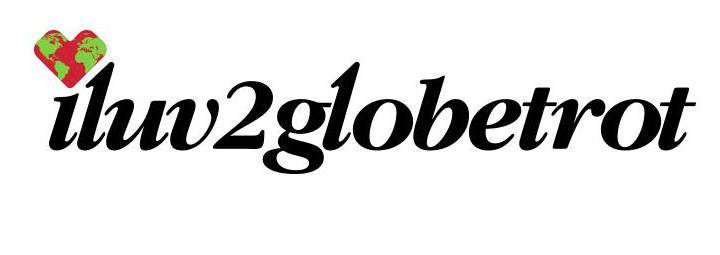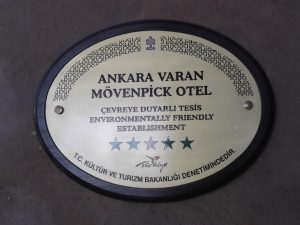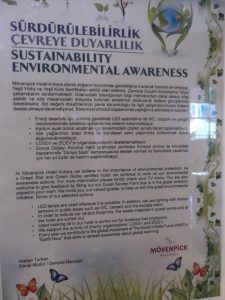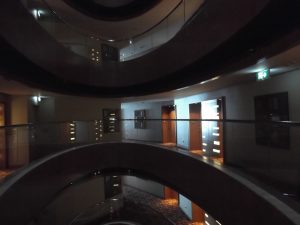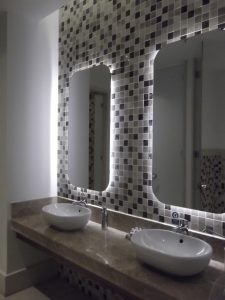By Chantal Blake
Via MovenPick’s Facebook
“Green” and “sustainable” are commonly used buzz words in the travel industry. They tend to attract conscientious consumers who care about the environment, but have you ever wondered what makes a hotel “green”? If you prefer camping in tents, sleeping in tree houses, or reclining in solar-powered yurts and earth domes, it’s pretty obvious that your accommodation has little to no carbon footprint, but when it comes to a hotel, there are particular features to look for and brands to remember. The Swiss brand, Mövenpick, is one such brand that is committed to the environment on a global scale. To get a sense of all of the greening that gets done behind the classy five-star presentation, I toured their Ankara location and left with a profound respect for their company and a refined awareness of what it means to be a truly eco-friendly hotel.
Certification
Pursuing a green or sustainable certification is no small feat. Auditors often visit annually to comb through the business practices of a given hotel to review their resource usage, waste handling, energy consumption, etc. If a hotel has put in the work to obtain recognition, more than likely it will be mentioned on their website or visible on a plaque outside of the hotel or in the reception lobby.
Public Education
Information and literature citing the sustainable features of a hotel should be accessible for their guests. Even if an individual traveler is initially unaware of their hotel’s eco-friendly features, they should be adequately informed about conservation policies like having towels and linen changed as needed, turning off lights and air conditioning when leaving the room, and clearly-labeled waste bins for recycling.
Energy Use
Sensor lights for unused rooms and dim hallway lighting ensure that energy is not wasted on lighting uninhabited spaces. Wide windows and sun roofs allow for passive lighting, so natural sunlight can be used for as long as the day lasts. Similarly, heavy curtains are kept closed in unused hotel rooms so the room temperature is insulated and heat is not loss or gained from the windows.
Water Use
Low-flush toilets are an obvious way to save water but the green hotel goes further. A rainwater catchment system should be in place or a greywater collection system to reuse water from hand, dish, and clothes washing. Low-flow showerheads and efficient plumbing fixtures prevent waste and leakage. As for drinking water, green hotels should utilize glass bottles and refillable water dispensers when possible.
Waste Management
Sorting waste for recycling is an easy practice but hotels like Mövenpick, for example, also collect their used oil for biodiesel fuel production. Their food and beverage products are ordered in bulk to reduce packaging and they collect food waste from their kitchen and restaurant to distribute to animal shelters.
Eco-Friendly Products
Cleanliness is paramount in hospitality but conventional cleaning products contain harsh chemicals that pollute our waterways and negatively affect our health. Ecological cleaners use natural elements that can effectively clean and disinfect without harming ourselves or the planet. Complimentary personal care products like shampoos and soaps should also be biodegradable and eco-friendly.
Plant-based Meals
Last but certainly not least, every green hotel recognizes that plant-based diets have a significantly lower impact on our environment and work to accommodate such diets accordingly. Vegetarian and vegan dishes should be regularly available and local, seasonal produce should be used when possible.
